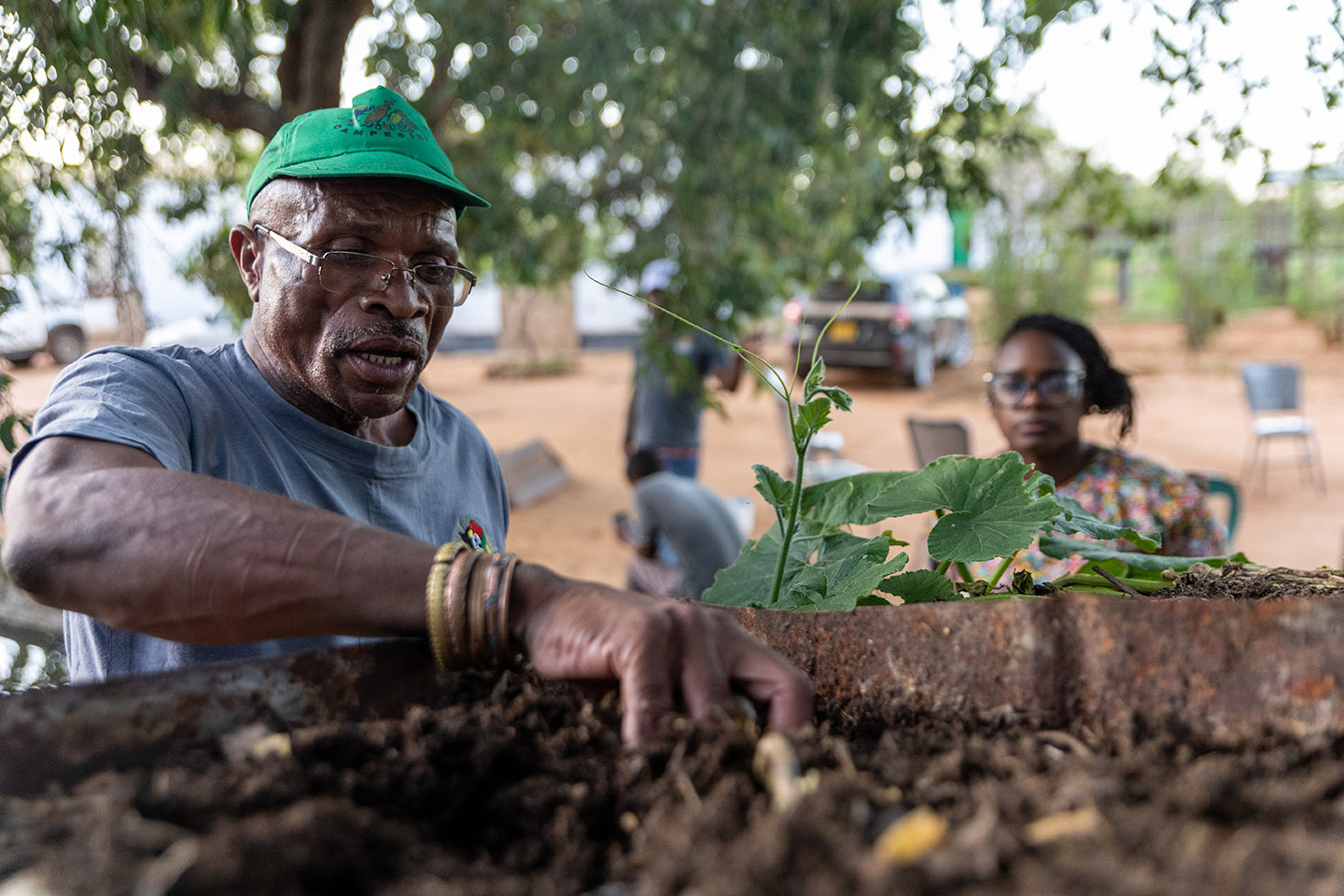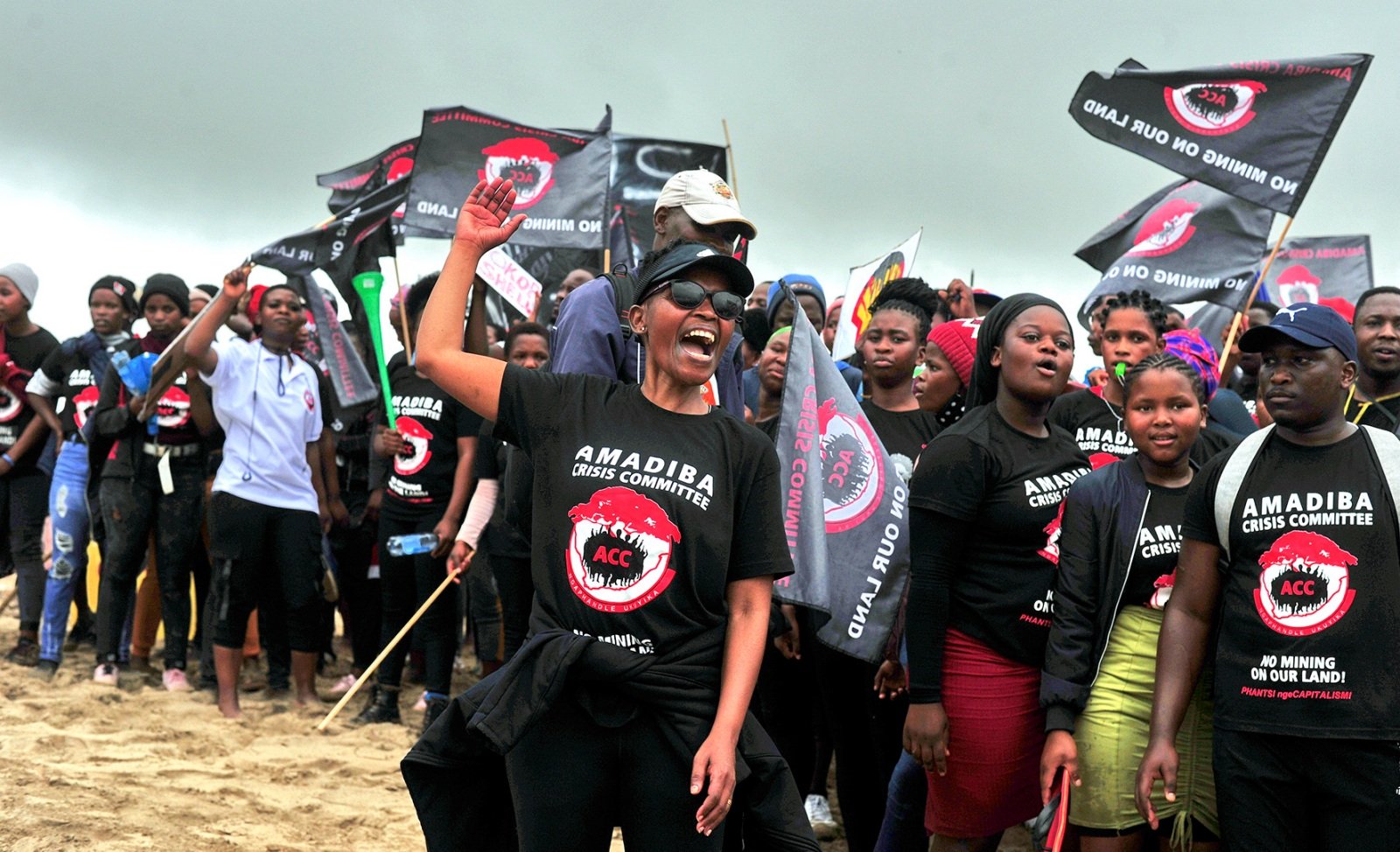The African ecological think tank advancing climate justice and food sovereignty
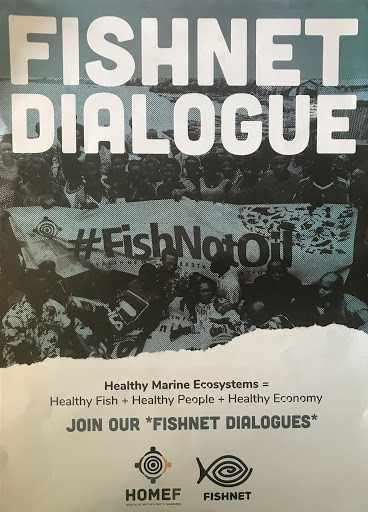
by Luam Kidane, former Vice President of Global Programs
In November 2019, I spent a week meeting with the Health of Mother Earth Foundation (HOMEF) and the communities they work with in the Niger Delta to get a deeper sense of the work they are doing and how Thousand Currents can better support their struggles for climate justice and food sovereignty.
Home to approximately 203 million people, Nigeria is one of the most populated and resource-rich nation-states on the African continent. In 2017, 692 million barrels of crude oil were produced, ranking Nigeria as the leading oil producer in Africa. The Nigerian National Petroleum Corporation (NNPC), a state-run agency, is responsible for regulating Nigeria’s oil and gas sector and for building the sector’s assets. However, the NNPC relies heavily on international oil companies to fund development and provide expertise. The largest international oil companies operating in Nigeria include Chevron Corporation, Exxon Mobil Corporation, Royal Dutch Shell plc, Total S.A., and Eni S.p.A. With Africa being home to “five of the top 30 oil-producing countries in the world, and [with] nearly $2tn of investments…expected by 2036,”the work of HOMEF is critical to a climate justice movement across Africa that is demanding that business as usual stops.
HOMEF is an ecological think tank that works to advance climate justice and food sovereignty in Nigeria and throughout Africa. It was founded in 2011 in Nigeria, with a satellite office opening in South Sudan in 2017. The first track of HOMEF’s work is driven by the belief that a transition from fossil fuels must be rapid, urgent, and not through the same infrastructure that has caused the climate crisis the world is in. Additionally, through a track called hunger politics, HOMEF asks the question: Why are people hungry? This work is led by a food sovereignty approach that seeks to expose the false solutions of industrialized agriculture that depend on toxic inputs and genetically modified seeds and amplify the solutions that agroecology gives. Finally, the Sustainability Academy, the last track of work, provides the popular education vehicle for the change HOMEF seeks to build. The academy provides spaces for knowledge creation and sharing between, among others, activists, scholars, farmers, pastoralists, fisherfolk, and community members.
While I was in Ogoniland, I attended a FishNet Alliance Dialogue hosted by HOMEF. The dialogues are a part of the Fish Not Oil campaign, started in collaboration with South Durban Community Environmental Alliance in South Africa, and have been held in Senegal, Ghana, Togo, Nigeria, and South Africa. The campaign seeks to support building collaboration between pastoralists, herders, farmers, and fisherfolk through community meetings, knowledge sharing, and community exchanges in order to protect African oceans and rivers and hold polluting corporations to account. As staff of HOMEF reminded me during my time in Nigeria, it is fisherfolk on the Nigerian coast who have been the first to alert the public to environmental destruction, including, just to name a few, Exxon Mobil’s oil spills of 2010 and 2016, Shell’s Bonga oil spill of December 2011, and Chevron’s gas rig explosion of January 2012. This particular dialogue focused specifically on monitoring the cleanup operation that has just commenced and on what communities in Ogoniland can do on a day-to-day basis in terms of monitoring the environmental damage being done by corporations working in the Niger Delta. The idea is that the data collected by the community would then be another source of evidence to add to the chorus of work that people, communities, and movements have done with the aim of realizing the demand of “leave the oil in the soil.”
The Fish Not Oil campaign understands that extractive industries, industrialized agriculture, land grabs, and corporate power are not contained by borders, and to mount an effective defense against environmental destruction, it is important that a pan-African strategy is nurtured and used. The campaign now has members across west and southern Africa.
The following are some photos I took at the dialogue held in Ogoniland in November and of my visit to Goi, a village in Ogoniland, which was destroyed by a gas explosion in 2005.
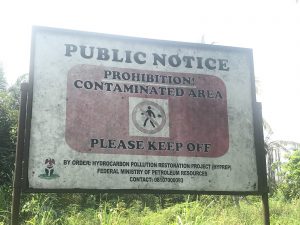
The sign at the entrance to Goi. There are no oil pipes in this village, but in 2005, there was a gas explosion that made it so that no one could live in the village anymore.
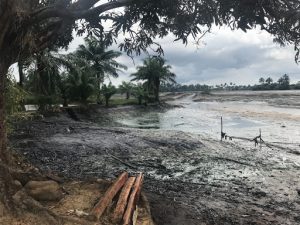
Fifteen years since the gas explosion, the area is still dealing with immense oil pollution. All the black in the photo is oil. This is a river where people used to fish.
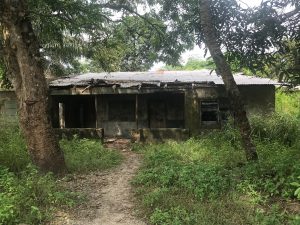
There were no pipelines in this village. The gas explosion happened because there had been an oil spill upriver, and the crude oil came downstream. What used to be a village full of people and life is now completely deserted because the oil pollution has made it uninhabitable.
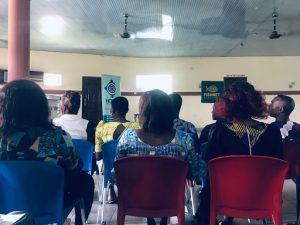
Fisherfolk and community members from Ogoniland attending an environmental monitoring training conducted by HOMEF.
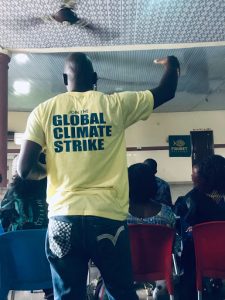
Community members from Ogoniland discussing resistance strategies at an environmental monitoring training being conducted by HOMEF
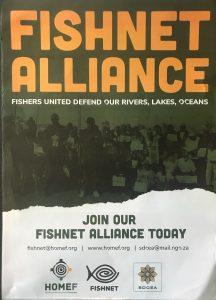
A Fish Not Oil outreach poster.
Related Stories
